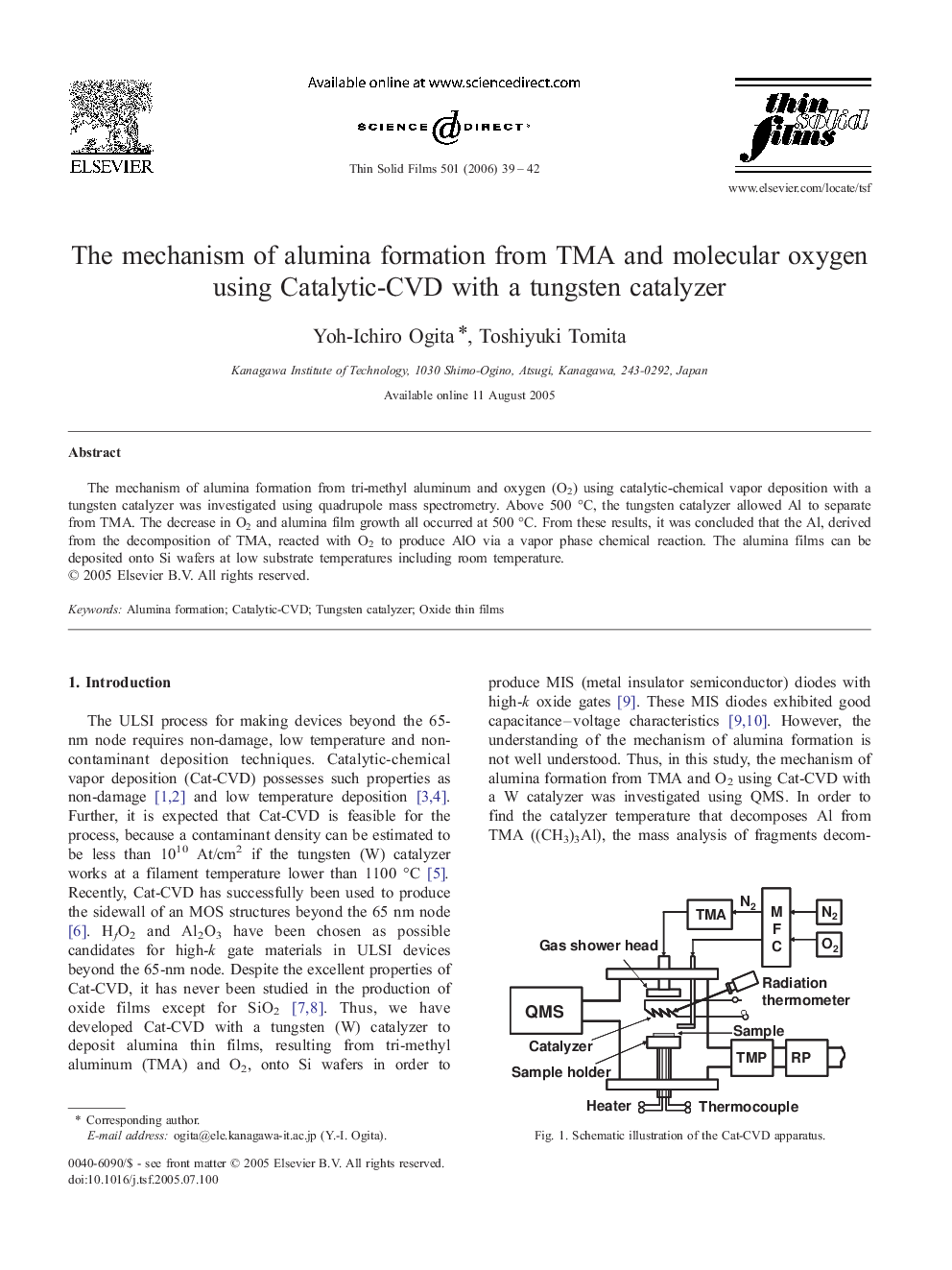| Article ID | Journal | Published Year | Pages | File Type |
|---|---|---|---|---|
| 1676154 | Thin Solid Films | 2006 | 4 Pages |
Abstract
The mechanism of alumina formation from tri-methyl aluminum and oxygen (O2) using catalytic-chemical vapor deposition with a tungsten catalyzer was investigated using quadrupole mass spectrometry. Above 500 °C, the tungsten catalyzer allowed Al to separate from TMA. The decrease in O2 and alumina film growth all occurred at 500 °C. From these results, it was concluded that the Al, derived from the decomposition of TMA, reacted with O2 to produce AlO via a vapor phase chemical reaction. The alumina films can be deposited onto Si wafers at low substrate temperatures including room temperature.
Keywords
Related Topics
Physical Sciences and Engineering
Materials Science
Nanotechnology
Authors
Yoh-Ichiro Ogita, Toshiyuki Tomita,
